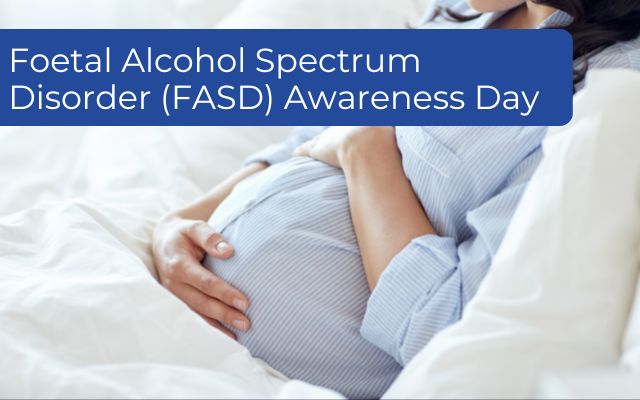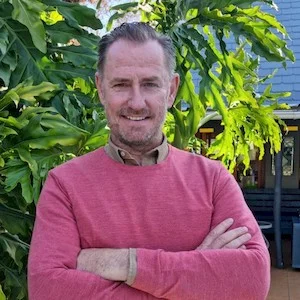The world commemorates International Foetal Alcohol Spectrum Disorders (FASD) Awareness Day on Friday 9 September 2022, at 09:09 – 9th day of the 9th month at 9 minutes past 9.

SA Has the Highest Rate of Foetal Alcohol Spectrum Disorders
Nowhere in the world in the world is it more important to recognise this day than in South Africa. A number of local communities in the Western and Northern Cape have the highest FASD rates in the globe, by far.
FASD affects an average 111 per 1000 children in South Africa which is 14 times higher than the global average of 7.7 per 1000.
However, research has found that FASD rates in some communities are more than double the national average. For example, in the Winelands area in the Western Cape, an estimated 290 per 1000 children have FASD. This means that almost one in three children in this community fit the diagnostic criteria for FASD.
These estimates might be lower than the true figure as FASD is often a “hidden disability” that can affect a child in a number of ways, not all immediately obvious to parents or doctors.
“Too often pregnant women addicted to alcohol are seen as callous monsters wilfully harming their unborn children, instead of sick people with a brain disease,” said addiction expert Gareth Carter, who is the Business Development Director for Changes Addiction Rehab in Johannesburg.
Addiction Is a Brain Disease
Addiction is a brain disease, not a choice. Repeated abuse of substances actually changes the structure and function of the brain which results in addicted people not being able to stop using and drinking despite mounting negative consequences and despite really wanting to quit.
“No woman sets out to harm their child by consuming alcohol while pregnant. Demonising these women only serves to push them, and their substance abuse problems, further underground. Instead, we should be making every effort to help pregnant women addicted to drugs and alcohol access addiction treatment which is the best way to prevent future cases of FASD,” said Carter, who is also an addict in recovery for almost three decades.
“There is no safe amount of alcohol use in pregnancy,” added Carter.
Table on FASD Rates in SA Communities Compared With Other Countries
| WHERE | FASD PREVALENCE per 1000 | PERCENTAGE OF CHILDREN WITH FASD | |
| 1 | Gauteng | 26 per 1000 | 2.6% |
| 2 | Upington (NC) | 64 per 1000 | 6.4% |
| 3 | Kimberly (NC) | 74.7 per 1000 | 7.47% |
| 4 | De Aar (NC) | 119.4 per 1000 | 11.94% |
| 5 | Aurora (WC) | 100 per 1000 | 10% |
| 6 | Winelands area (WC) | 290 per 1000 | 29% |
| 7 | United States | 15 per 1000 | 1.5% |
| 8 | Canada | 10 per 1000 | 1% |
| 9 | Italy | 35 per 1000 | 3.5% |
| 10 | France | 18 per 1000 | 1.8% |
Source: http://www.samj.org.za/index.php/samj/article/view/11009/7444
Alcohol and Pregnancy: A Detailed Look at the Risks
Risks associated with alcohol use during pregnancy only began to be recognised in 1973.
Consuming alcohol at any stage in pregnancy may affect the foetus and result in permanent multi-system damage. Alcohol use in the first three months of pregnancy appears to be most harmful and the more the mother drinks the worse the effect is likely to be on physical growth and brain development.
FASDs (foetal alcohol spectrum disorders) are entirely preventable if a baby is not exposed to alcohol before birth. Symptoms range from learning difficulties, hyperactivity and attention problems, and poor impulse control – all the way to stunted physical growth, a smaller than normal head, impaired vision and hearing, as well as organ damage.
Drinking alcohol during pregnancy increases the risk of miscarriage, premature birth and low birth weight. Drinking and smoking during pregnancy increases the risk of stillbirth and SIDS (sudden infant death syndrome).
FAS (foetal alcohol syndrome) represents the most extreme end of the FASD spectrum. People with FAS have central nervous system (CNS) problems, minor facial features, and growth problems. People with FAS can have problems with learning, memory, attention span, communication, vision, or hearing.
The Legacy of the ‘Dop’ System
The condition is endemic in the Western and Northern Cape, where high levels of unemployment, alcohol abuse, substance abuse and teen pregnancies are intrinsic to daily life. Also, the history of the dop system in these areas plays a massive role in the high FASD rate.
Experts point to the 200-year-old dop system, in which white farmers paid black and mixed-race workers in wine, or ‘dop’, as the primary cause of the regions’ high prevalence of alcoholism. Although the system was outlawed long ago, the legacy lives on. There are even reports that some farmers continue to compensate farmworkers with alcohol, despite the fact that it is illegal.
Medical Aid Cover and Approvals
Many plans contribute to treatment; pre-authorisation speeds access to care.
Costs to Individuals and Society
There is no real concerted government-led effort to address the issue and the state’s response to this serious problem is unclear.
Estimates on the cost of FASDs to South African society don’t exist but estimates from other countries can shed some light on the broader impact.
Research done in the United Kingdom estimates the cost of raising a single child with FAS across their lifespan to be approximately £2.9m. Another study, conducted in Canada, found that youths with FASD were 19 times more likely to be incarcerated in the criminal justice system than their peers without FASD.
Alcohol Use, Abuse and Addiction in SA
South Africa ranks high in terms of the world’s biggest drinkers. Data from the World Health Organisation for 2015 ranked the country as the third biggest drinking nation in Africa and number 19 globally.
More than a quarter of South Africans who drink are classified as binge drinkers.
According to the latest data available from the South African Community Epidemiology Network on Drug Use, the last half of 2020 saw an increase in the number of people attending addiction treatment reporting that alcohol was their primary drug of use. This ranged from 8% of people in Gauteng to 34% of people in KwaZulu-Natal seeking treatment for alcohol addiction.
Globally, around one in 10 pregnant women consume alcohol, according to the World Health Organisation.
Rates in South Africa are at least double the global average. Studies have found that between 20% and 40% of pregnant women in South Africa consume alcohol, making prenatal alcohol exposure a significant local public health problem.
Treatment
There is no cure for FASDs and it lasts a lifetime. However, evidence shows that early diagnosis and intervention can help affected children’s development.
Interventions include specialised teaching strategies, family support groups for parents, nutritional supplements for pregnant women as well as for their children as well as other behavioural interventions like problem solving and social skills training.
Also, “protective factors” can help mitigate the problems faced by children with FASDs and help them harness their full potential.
Protective factors include:
- Diagnosis before 6 years of age
- Loving, nurturing, and stable home environment during the school years
- Absence of violence
- Involvement in special education and social services
Prevention Is the Best Treatment
But the best treatment is prevention. Young women who are pregnant or are likely to become pregnant, who are addicted to alcohol or other drugs, should be helped to access rehabilitative treatment to address their substance addiction before it can impact their unborn children.
Government policies addressing FASDs need to include strategies to assist women access addiction treatment as the best way to prevent FASDs.
For more information or to request interviews with addiction expert Gareth Carter please contact us directly.
Raise awareness of foetal alcohol spectrum disorders in South Africa and help communities prevent prenatal alcohol harm and support affected children.. Changes team counsellors are here to help you.Foetal Alcohol Spectrum Disorders Awareness Day South Africa








